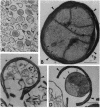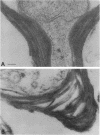Abstract
Frankia vesicles are differentiated during nitrogen starvation; they contain nitrogenase whether produced by free-living frankiae or by frankiae in actinorhizal root nodules. Vesicles are surrounded by envelopes of several monolayers of uncharacterized lipid. It has been suggested that the envelope limits diffusion of O2 into the vesicle cytoplasm, thereby preventing inactivation of nitrogenase. Whole vesicles were prepared on sucrose gradients and sonicated, and vesicle envelopes were isolated on top of a cushion of 40% sucrose. Transmission electron microscopy of potassium permanganate-fixed envelopes confirmed the purity of these preparations. Only the outer and inner envelope layers were visible in permanganate-fixed intact vesicles; the laminae were not visible in aldehyde-osmium-fixed, lead citrate-uranyl acetate-stained whole vesicles. However, the laminated nature of the envelope was clearly evident in sonicated vesicles and in envelope fragments fixed with KMnO4. The observations indicate that partial disruption of the vesicle envelope enables its visualization with permanganate fixation, and these observations open the way for further studies on the relationship of the vesicle surface to environmental conditions.
Full text
PDF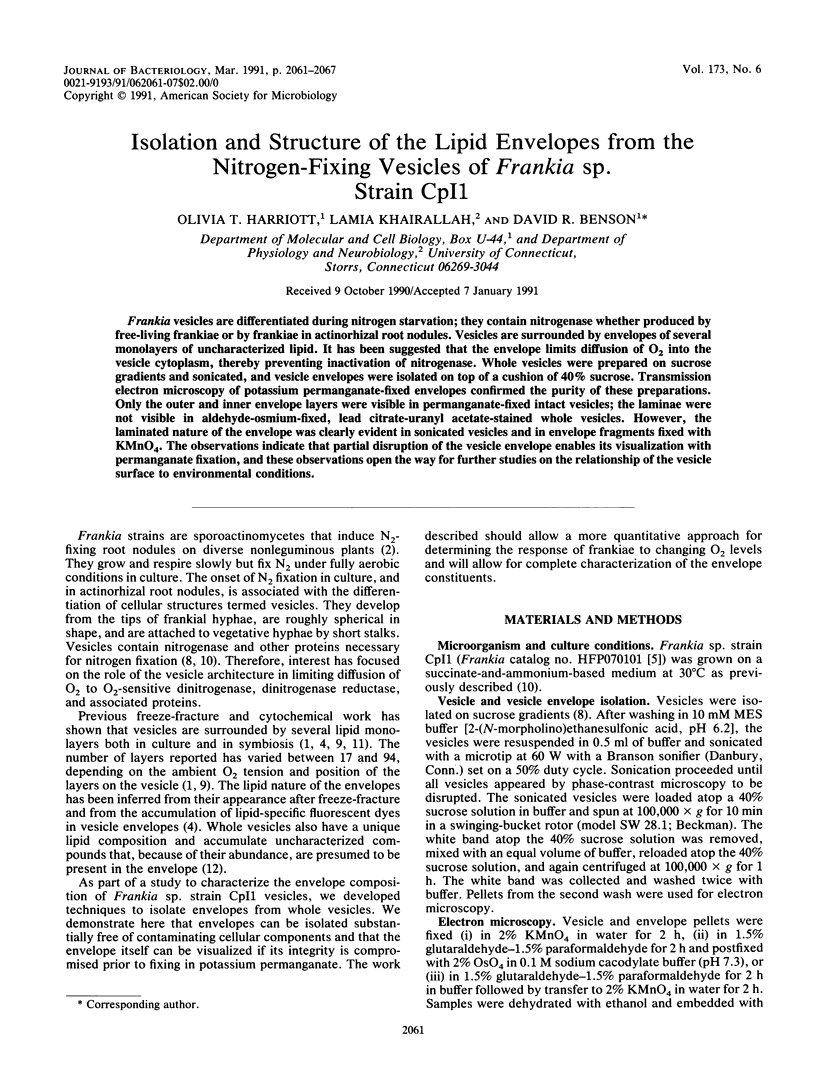
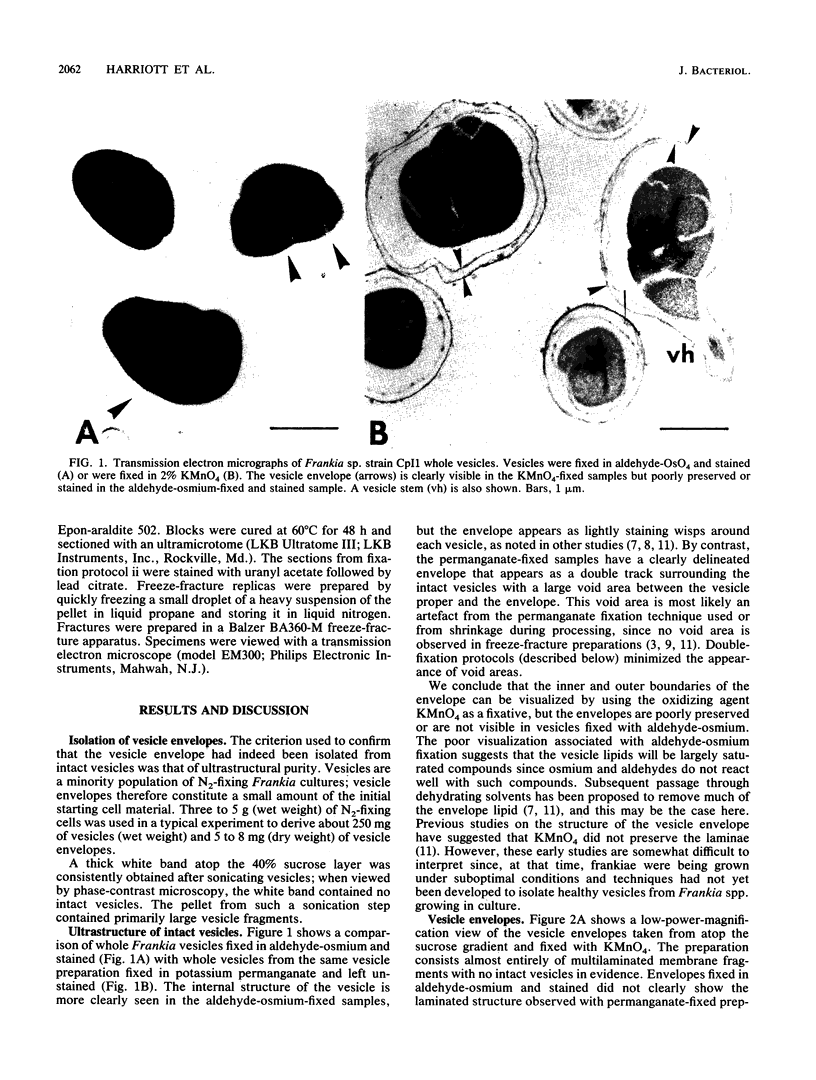
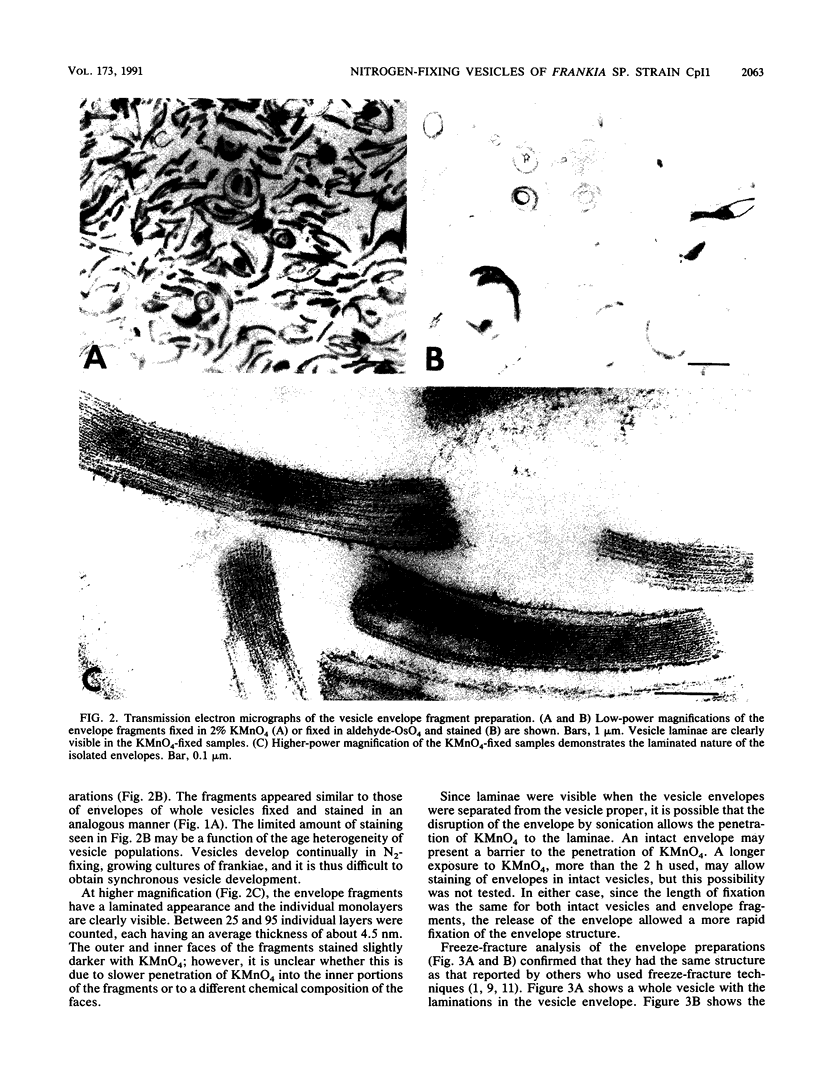
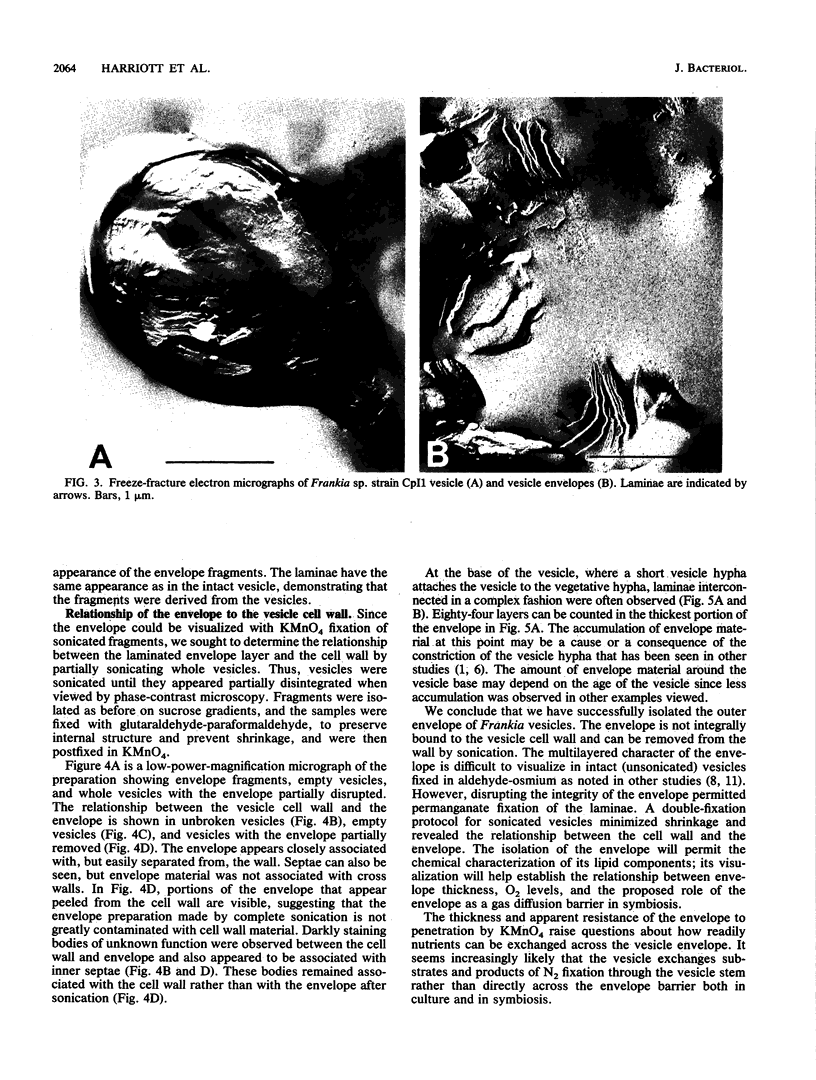
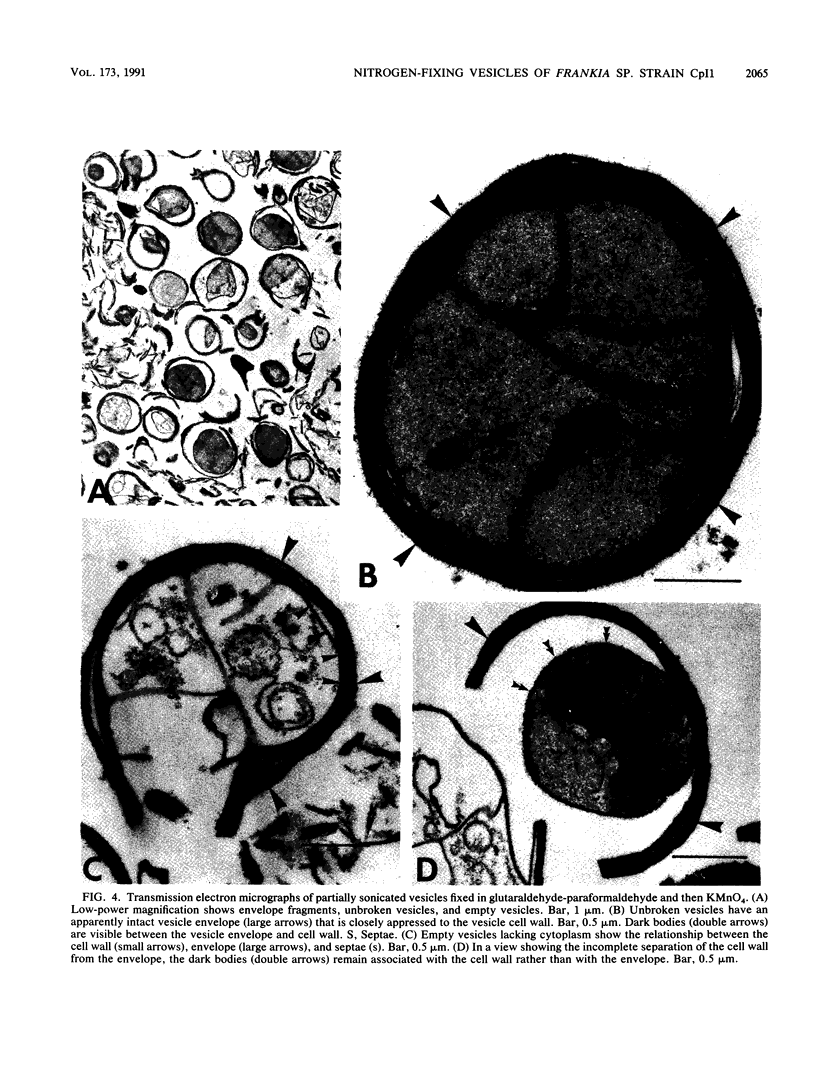
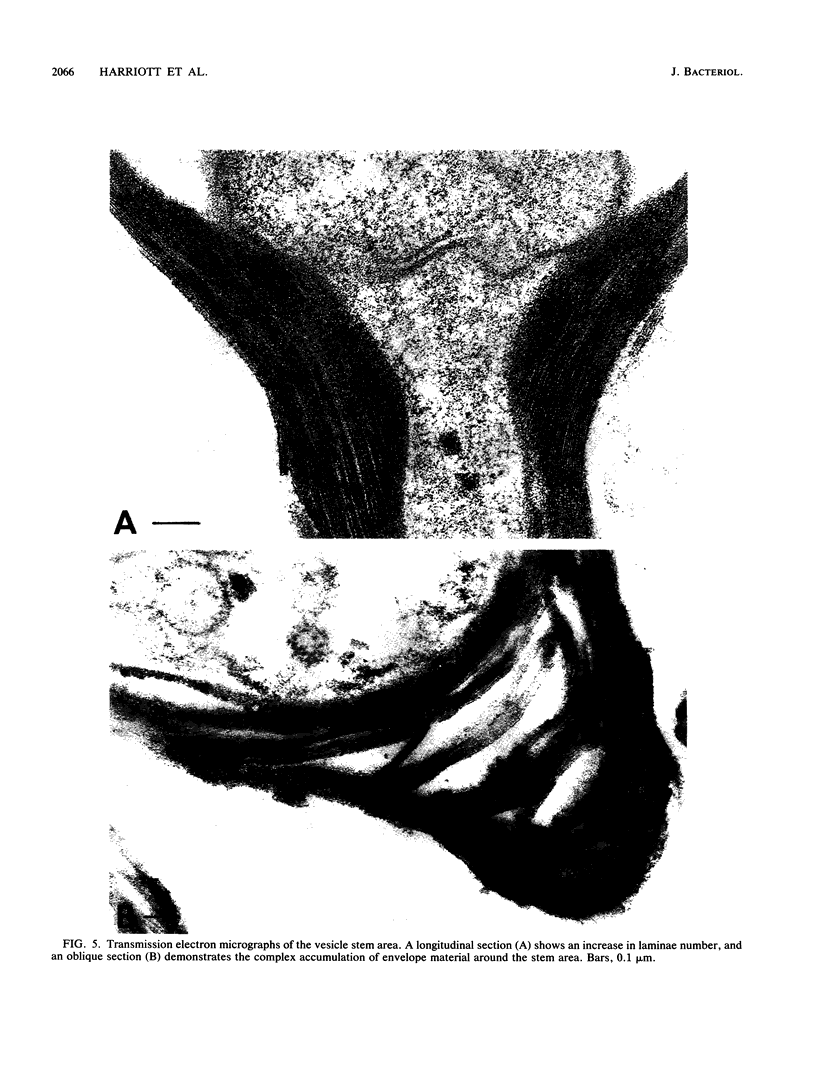
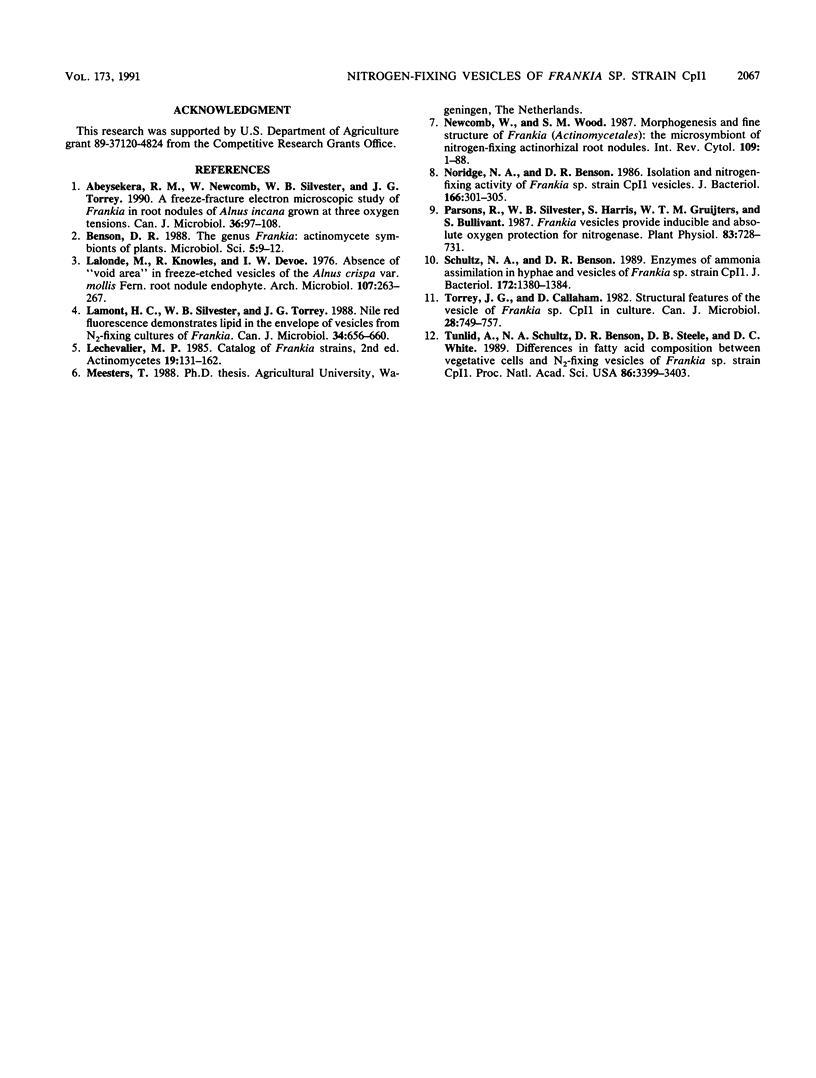
Images in this article
Selected References
These references are in PubMed. This may not be the complete list of references from this article.
- Benson D. R. The genus Frankia: actinomycete symbionts of plants. Microbiol Sci. 1988 Jan;5(1):9–12. [PubMed] [Google Scholar]
- Newcomb W., Wood S. M. Morphogenesis and fine structure of Frankia (Actinomycetales): the microsymbiont of nitrogen-fixing actinorhizal root nodules. Int Rev Cytol. 1987;109:1–88. doi: 10.1016/s0074-7696(08)61719-2. [DOI] [PubMed] [Google Scholar]
- Noridge N. A., Benson D. R. Isolation and nitrogen-fixing activity of Frankia sp. strain CpI1 vesicles. J Bacteriol. 1986 Apr;166(1):301–305. doi: 10.1128/jb.166.1.301-305.1986. [DOI] [PMC free article] [PubMed] [Google Scholar]
- Parsons R., Silvester W. B., Harris S., Gruijters W. T., Bullivant S. Frankia vesicles provide inducible and absolute oxygen protection for nitrogenase. Plant Physiol. 1987 Apr;83(4):728–731. doi: 10.1104/pp.83.4.728. [DOI] [PMC free article] [PubMed] [Google Scholar]
- Schultz N. A., Benson D. R. Enzymes of ammonia assimilation in hyphae and vesicles of Frankia sp. strain CpI1. J Bacteriol. 1990 Mar;172(3):1380–1384. doi: 10.1128/jb.172.3.1380-1384.1990. [DOI] [PMC free article] [PubMed] [Google Scholar]
- Tunlid A., Schultz N. A., Benson D. R., Steele D. B., White D. C. Differences in fatty acid composition between vegetative cells and N(2)-fixing vesicles of Frankia sp. strain CpI1. Proc Natl Acad Sci U S A. 1989 May;86(9):3399–3403. doi: 10.1073/pnas.86.9.3399. [DOI] [PMC free article] [PubMed] [Google Scholar]






